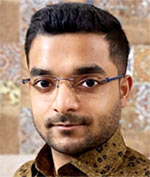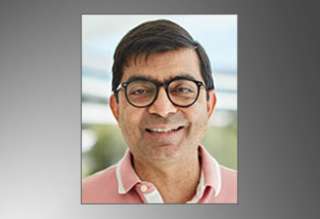SPS Webinar: Novel Prospects of Image Restoration Inspired by Concepts of Quantum Mechanics
Date: 9 March 2023
Time: 9:00 AM ET (New York Time)
Presenter(s): Mr. Sayantan Dutta
Biography
 Sayantan Dutta received the B.Sc. degree in mathematics from the University of Burdwan, Bardhaman, India, in 2016, the M.Sc. degree in applied mathematics from the Visva-Bharati University, Santiniketan, India, in 2018, and the M.Sc. degree in fundamental physics from the University of Tours, Tours, France, in 2019. He is currently working toward the Ph.D. degree with the Institut de Recherche en Informatique de Toulouse and Laboratoire de Physique Theorique de Toulouse laboratories, Uni- ‘versity Paul Sabatier Toulouse 3, Toulouse, France.
Sayantan Dutta received the B.Sc. degree in mathematics from the University of Burdwan, Bardhaman, India, in 2016, the M.Sc. degree in applied mathematics from the Visva-Bharati University, Santiniketan, India, in 2018, and the M.Sc. degree in fundamental physics from the University of Tours, Tours, France, in 2019. He is currently working toward the Ph.D. degree with the Institut de Recherche en Informatique de Toulouse and Laboratoire de Physique Theorique de Toulouse laboratories, Uni- ‘versity Paul Sabatier Toulouse 3, Toulouse, France.
His research interests include deep learning, quantum computing, quantum image processing and inverse problems, particularly denoising, deblurring, super-resolution and compressed sensing. He served as a reviewer in IEEE Transactions on Geoscience and Remote Sensing, IEEE Transactions on Ultrasonics, Ferroelectrics, and Frequency Control, IEEE Access, Geophysical Journal International - Oxford Academic, and IEEE International Conference on Image Processing (ICIP).
Abstract
Decomposition of digital images into other basis or dictionaries than time or space domains is a very common and effective approach in image processing and analysis. Such a decomposition is commonly obtained using fixed transformations (e.g., Fourier or wavelet) or dictionaries learned from example databases or from the signal or image itself. In recent years, with the growth of computing power, data-driven strategies exploiting the redundancy within patches extracted from one or several images to increase sparsity have become more prominent. They have demonstrated very promising image restoration results. The question to pursue in this work is how to design such an adaptive transformation based on principles of quantum mechanics.
We investigate in detail a new approach of constructing such a signal or image-dependent bases inspired by quantum mechanics tools, i.e., by considering the signal or image as a potential in the discretized Schrodinger equation. To illustrate the potential of the proposed decomposition, denoising results are reported in the case of Gaussian, Poisson, and speckle noise and compared to the state of the art algorithms. We further generalize our proposed adaptive basis by exploiting the data-driven strategy inspired by quantum many-body theory. Based on patch analysis, the similarity measures in a local image neighborhood are formalized through a term akin to interaction in quantum mechanics that can efficiently preserve the local structures of real images.
The versatile nature of this adaptive basis extends the scope of its application to image independent or image-dependent noise scenarios without any adjustment. We carry out a rigorous comparison with contemporary methods to demonstrate the denoising capability of the proposed algorithm regardless of the image characteristics, noise statistics and intensity. We show the ability of our approaches to deal with real-medical data such as clinical dental computed tomography image denoising and medical ultrasound image despeckling applications.











